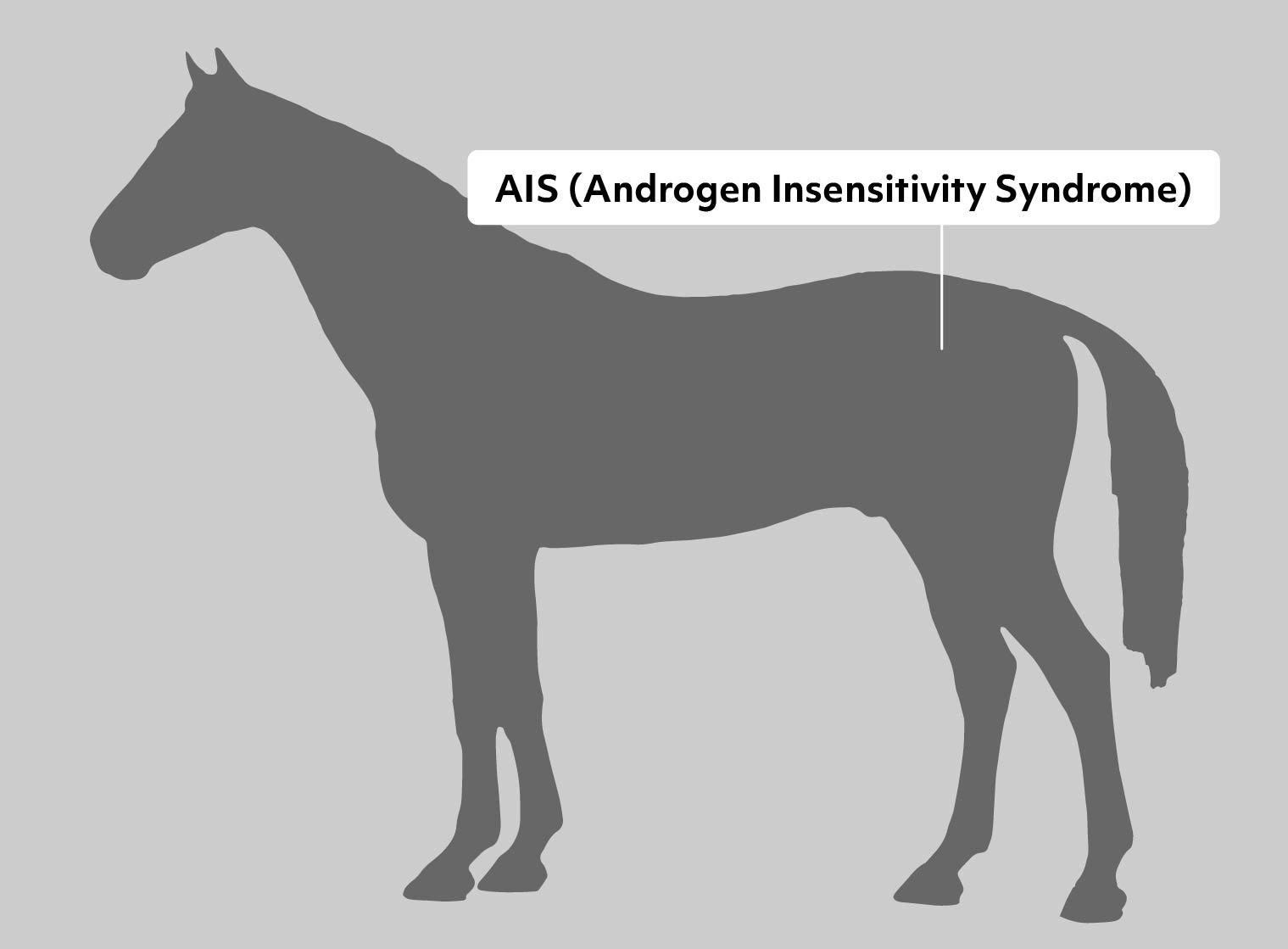Androgen Insensitivity Syndrome (AIS)
Gene or Region: AR
Reference Variant: A
Mutant Variant: G
Affected Breeds: Quarter Horses
Research Confidence: High - Findings supported by other species
Explanation of Results: AIS/AIS = homozygous for Androgen Insensitivity Syndrome, not observed AIS/n (female) = heterozygous for Androgen Insensitivity Syndrome, female carrier AIS/n (male) = heterozygous for Androgen Insensitivity Syndrome, sterile and phenotypically female n/n = no variant detected
General Description for Androgen Insensitivity Syndrome
Androgen Insensitivity Syndrome (AIS), previously known as Testicular Feminization Syndrome, is a disorder of sexual development in which a horse with a XY SRY+ karyotype appears female. Horses with AIS exhibit stallion-like behaviors, have external female genitalia, and often internal un-descended testicles.
AR is a steroid-activated transcription factor that plays a key role in normal sexual development. Mutations in other species have been noted to cause AIS and have been associated with prostate cancer. This particular mutation is a single base change that alters the start codon of the encoded protein. Though normal transcription and translation still occurs, the encoded protein likes has an altered function.
References
Révay T et al., “GTG mutation in the start codon of the androgen receptor gene in a family of horses with 64,XY disorder of sex development.” (2012) Sex Dev. 6: 108-16. PMID: 22095250
More Horse Health
Occipitoatlantoaxial Malformation 1
Occipitoatlantoaxial Malformation 1 (OAAM1) is an inherited developmental condition predominantly found in Arabian horses, characterized by abnormal development of the cervical vertebrae leading to compression of the upper cervical cord and subsequent neurological damage.
Polysaccharide Storage Myopathy
Polysaccharide Storage Myopathy (PSSM) is a glycogen storage disorder in which affected horses have chronic episodes of exertional rhabdomyolysis (“tying-up”). Acute symptoms are an unwillingness to move and muscle damage following exercise. Moderate symptoms can usually be managed through a low-sugar/starch diet and exercise.
Recurrent Laryngeal Neuropathy
Recurrent Laryngeal Neuropathy (RLN) is a disease that results in loss of the neurons that open the larynx, significantly affecting performance in Thoroughbreds and other sport horses. It is an important issue for horses in competitive events because the resultant paralysis of the larynx leads to obstruction of air flow during intense exercise, creating the abnormal inspiratory noise that gives RLN its common name: “roaring”.
